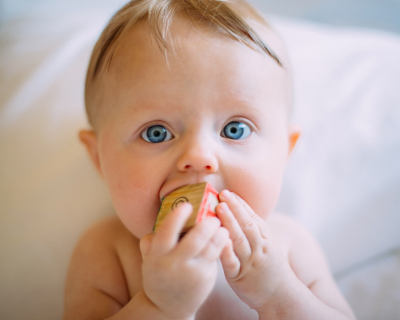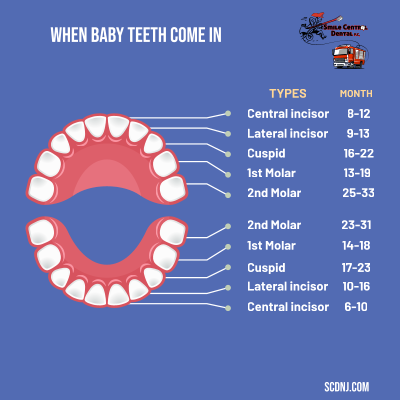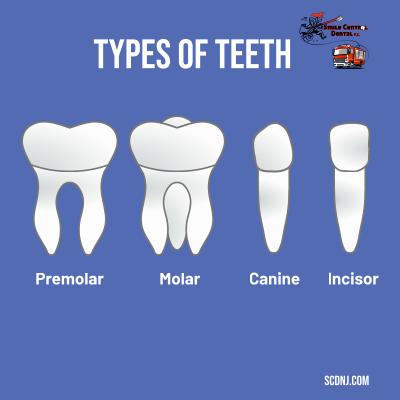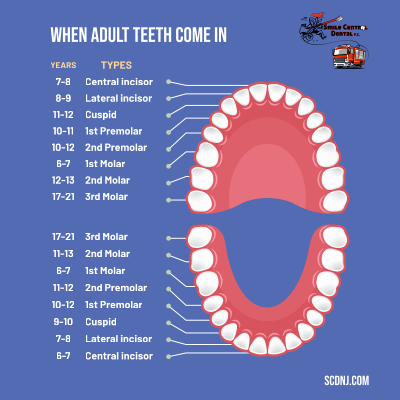Babys first birthday equals babys first checkup
January 20th, 2021
Babys first birthday equals baby's first checkup
Subtitle: What happens at baby's first dentist visit?
The American Dental Association (ADA) recommends a dental visit for children by age one.
Many parents may not know that baby teeth can get cavities just as permanent teeth can. Primary teeth/Baby teeth are necessary for children to chew and speak as well as to hold space for developing permanent teeth below the gums.
What are the benefits of visiting a children's general Dentist by age one?
- Cavity prevention starts when they have their first tooth.
- Starting when your child is young will allow them to become familiar with visits to the dentist.
- Being proactive early can help keep their pearly whites healthy for life.
- Earlier visits can be helpful for the detection of early tooth decay or any other dental developmental anomalies as well as provide parents with information on proper oral hygiene and development, and answer questions.
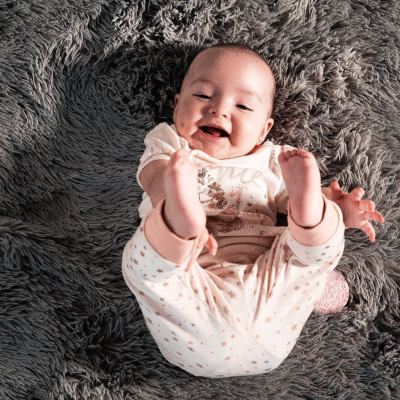
Recent studies show early childhood tooth decay to be on the rise. Earlier visits to a children's general Dentist can prevent childhood tooth decay through education and regular visits.
Here is how you can make your child’s first dental visit a successful one:
- Be positive and show excitement before and during your child’s first visit to the dentist. If you show any anxiety that you may have about visiting the dentist, your child would also be scared.
- Talk about it- use books and relevant resources to help prepare and get your child familiar with visiting the dentist.
- Timing is vital- Plan beforehand so that you have plenty of time and arrive early so your visit is not rushed. Make sure your child is well-rested before the visit so they are comfortable. Morning is usually the best time for young children to visit the dentist.
- Start them early- Starting healthy habits like proper oral hygiene at an early age is important to prevent problems.
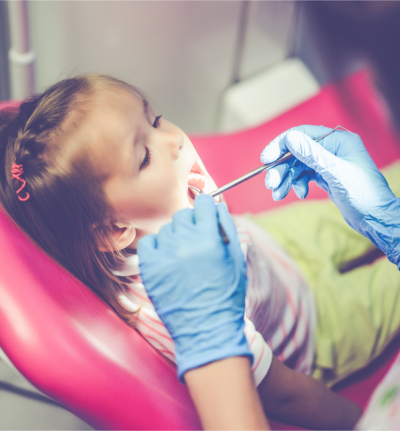
What Happens at the First Dental Visit?
The first dental visit is usually brief. It gives your child an opportunity to meet the dentist in a non-threatening and friendly way and involves little to no treatment.
During the visit, your dentist will
- Examine all existing teeth for decay. Hint: When that first tooth erupts. You can visit the dentist.
- Look at your child's bite
- Get a look for any potential problems with the gums, jaw, and oral tissues.
Your children's general dentist would also educate you about oral health care basics for children and discuss dental developmental issues and answer any questions that you might have.
To schedule a first consultation or visit, please contact us at
one of our locations:
1. 140 Market St, Paterson, NJ 07505
Children's Dentistry - 3rd Floor
Orthodontics Center - 2nd Floor
Treatment Center - 4th Floor
(973) 742-4200
2. 625 Main Ave
Passaic, NJ 07055
Children's Dentistry - 3rd Floor
(973) 574-1000
3. 3196 John Fitzgerald Kennedy Blvd
3rd Floor
Union City, NJ 07087
(201) 325-8444

